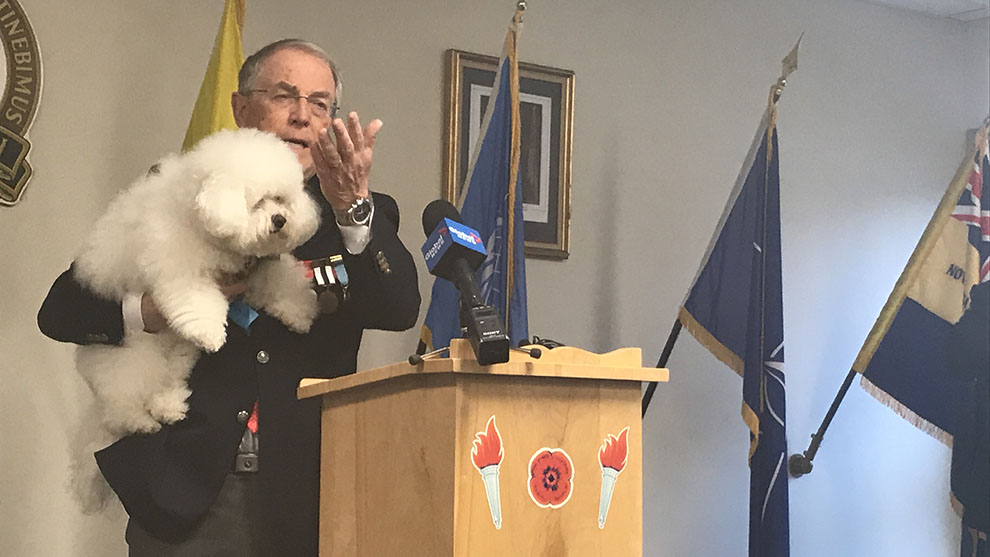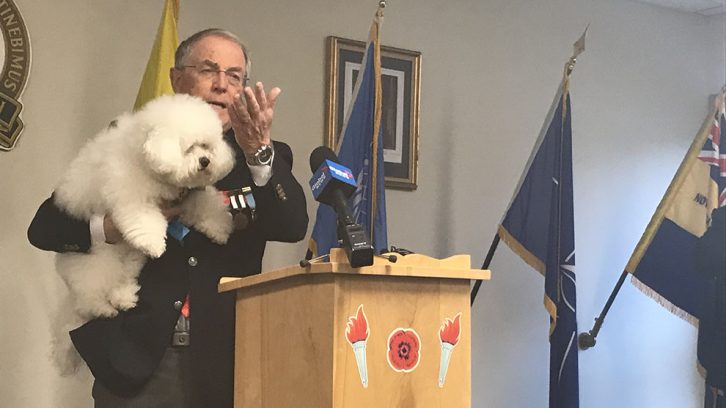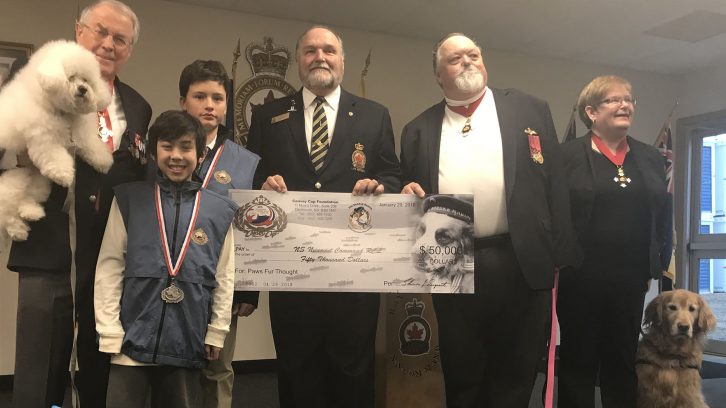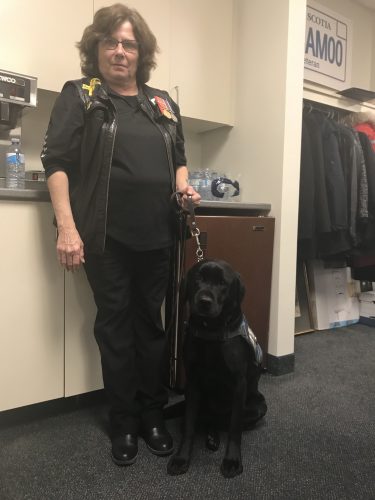PTSD
Paws Fur Thought given $50K donation
Organization pairs support dogs with veterans in need


caption
Convey Cup Foundation Chairman Steina Engeset and his dog, Bella, make the presentation to Paws Fur Thought.When Kim Gingell met Medric Cousineau, she was struggling with Post Traumatic Stress Disorder (PTSD) that was so crippling she labelled herself “broken.”
Cousineau, co-founder of Paws Fur Thought — a volunteer driven initiative that advocates and raises funds to pair PTSD service dogs with veterans — asked her if she wanted a dog.
She said yes and the decision changed her life.
“Omega never lets me out of her sight,” said Gingell. “If I need her, she’s there.”
It is this commitment to improving the lives of veterans living with PTSD that prompted the Convoy Cup Foundation to support Paws Fur Thought with a donation of $50,000.
Chairman Steina Engeset presented the cheque Monday at a special presentation at the Royal Canadian Legion Nova Scotia/Nunavut Command Headquarters in Dartmouth.
“It is well known that animals on board ships, during the war at sea, brought great solace and built morale among the ship’s company,” said Engeset.

caption
(left to right) Steina Engeset, Steve Wessel, Medric Cousineau, Jocelyn Cousineau after the cheque presentation.So far, Paws Fur Thought has paired over 90 veterans with service dogs. Cousineau expects to surpass the 100 mark in March.
Cousineau started the project because he himself has PTSD. After a stay in a psychiatric facility proved unhelpful, he reached out to the Legion for help.
“They decided they were going to help me. And they did. And I got a dog,” said Cousineau. “And a few months after I got the dog, my daughter came home from university and she was gobsmacked. She had never seen the man that my wife had married until then.”
Gingell is now the intake co-ordinator with Paws Fur Thought and she and Omega are inseparable.

caption
Kim Gingell and her support dog Omega.“If you ever see any of these dogs jumping or nudging or doing something out of the ordinary, that means that their handler is triggered. They can sense it,” Gingell said.
At eight weeks old puppies in the program are sent to the United States to learn obedience training by inmates at a prison. From there, they go into socialization homes and then to “finish farms,” where they learn specific job skills that are tailored to each veteran.
“It’s a long process, but they come back to us in March and we have what we call Magical Monday, which is when they meet their partner for the first time,” said Cousineau.
Gingell enjoys seeing the dogs change lives.
“It’s amazing seeing the transformation in people,” she said. “You can hear the hope in their voice knowing that the dog can help them. It’s just wonderful.”


C
Colette Girard
A
Angel Moore